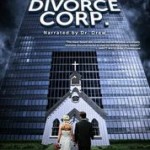Roberts Promises Supreme Court E-filing
Magazine Notes High-Stakes Court Cases
Report: Immigration Wait For Non-Detained Average 900 Days
“Detained cases, they try to move more quickly,” TRAC Research Center director Susan Long told Hearst. “Secondly, most of those don’t have attorneys, and therefore they get deported. Removal decisions move much more quickly than any one that has an application for relief.
The story also noted that “… nationally, as of Sept. 30, 2013, EOIR had 350,330 pending cases. That’s up 56 percent from the 223,707 cases pending on Sept. 30, 2009. Between 2009 and the start of the influx of unaccompanied minors from Central America at the U.S.-Mexico border earlier this year, the number of new cases received in immigration courts actually was in decline, EOIR’s statistics show.”
Courts Monitor Writer On Vets’ Asbestos Issue
Still Undecided? LAT Endorsements
Top Ten Takeaways from Perrin Conference in L.A.
Family Court ‘Expose’ On The Big Screen
That new “Divorce Corp.” documentary by Joe Sorge continues to make waves, with Variety saying that its director “… depicts the family court itself as an untrustworthy, user-unfriendly system of so-called justice. Here, they claim, divorcing couples are placed at the mercy of judges who are frequently irresponsible in their judgment; intolerant of those who attempt to navigate the courts without counsel (there are no court-appointed attorneys); and prejudiced in favor of lawyers who ply them with campaign contributions.”
